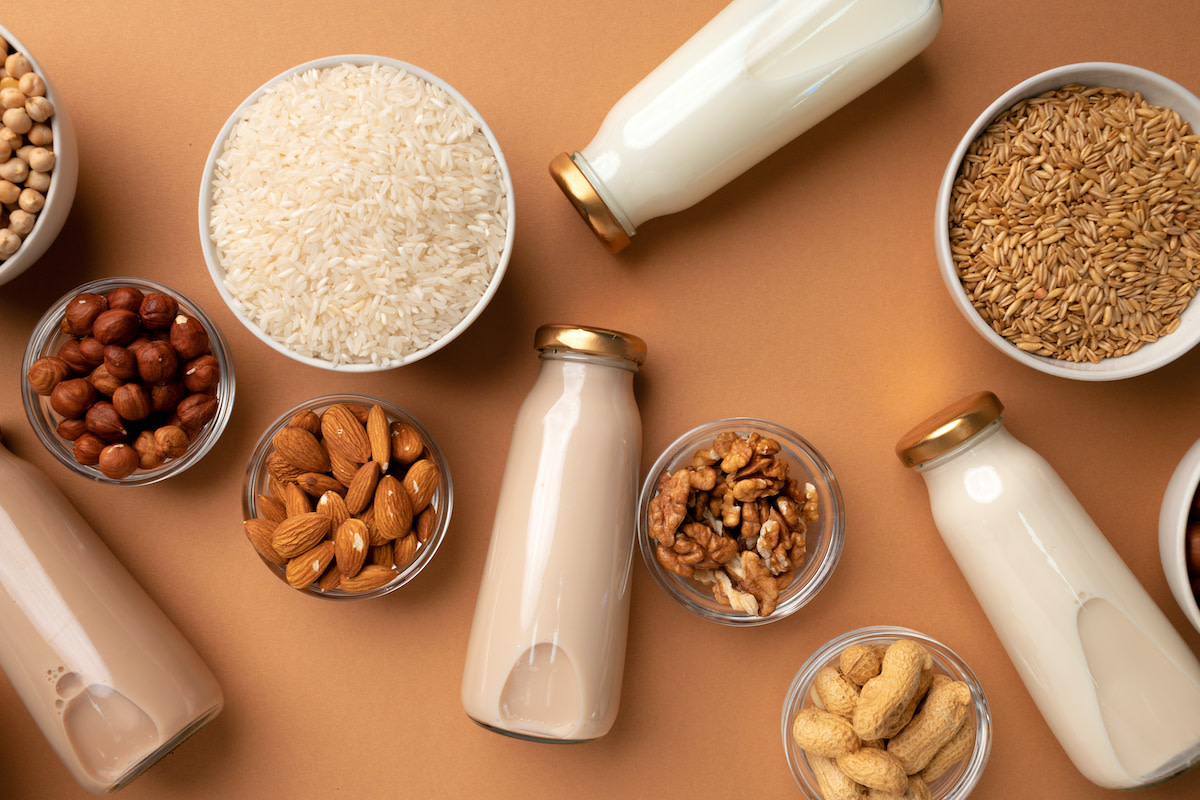Nut Milk Guide: 8 Common Types of Nut Milks
Written by MasterClass
Last updated: Jun 7, 2021 • 3 min read
There are many great alternatives to animal milk products that suit a variety of tastes. In addition to plant-based options like oat milk, hemp milk, and soy milk, there are several nut-based milks that you can buy from the market or make at home with a handful of ingredients.
Learn From the Best
What Are Nut Milks?
Nut milks are a form of non-dairy milk alternatives derived from nuts soaked in water and blended into a creamy beverage that you can use in your morning latte or smoothie. You can purchase many kinds of nut milk at the grocery store, but they typically contain preservatives and added sugars that may not be suitable for those with dietary restrictions. However, with a blender, a nut milk bag, nuts of your preference, and water, you can make your own nut milk at home.
Nut milk is an excellent source of fiber, containing an array of vitamins, minerals, and amino acids. Outside of health benefits, nut milk is also more environmentally friendlier than its dairy counterpart. Commercial nut milk production has less environmental impact than traditional cow milk production, which is a larger source of greenhouse gas emissions than any plant- or nut-based milk on the market.
8 Types of Nut Milks
Whether you have dietary restrictions or are just in search of alternatives to traditional cow’s milk, there are a variety of nut-based milks you can try, such as:
- 1. Almond milk: Almond milk is a dairy-free milk used as an alternative to cow's milk and other non-dairy milks such as soy milk, cashew milk, and oat milk. For vegans and others with dietary restrictions, almond milk is a great option for everything from smoothies to cereals, as a coffee creamer, and even in ice cream. Almond milk contains two ingredients: raw almonds and freshwater. You can buy it from a store or make your own almond milk at home using a blender, cheesecloth, almonds, and water. Homemade almond milk has a nuttier, more almond-y flavor than store-bought versions.
- 2. Cashew milk: Cashew milk is a dairy-free alternative milk made from soaked cashews blended with water, then strained. Cashew milk has a creamy, sweet flavor like cow’s milk and other non-dairy milks. Store-bought almond milk may contain added sugars and preservatives. However, you can control the sugar content by making cashew milk from the comfort of your own home.
- 3. Macadamia milk: You can make macadamia milk by blending soaked macadamia nuts with water. Macadamia milk has a rich, smooth texture and almost fruity flavor, and serves as a creamy substitute for cow’s milk. Since macadamia trees are difficult to grow, the nuts are rarer than other types of nuts, making them more expensive. Macadamia milk is a great option for baking or as a standalone beverage.
- 4. Walnut milk: Walnut milk is a non-dairy milk made by blending soaked walnuts and water together, and straining the resulting liquid for a smooth beverage. Walnuts are a source of antioxidants, omega-3 fatty acids, and fiber.
- 5. Hazelnut milk: Hazelnut milk is a non-dairy milk alternative made from soaked hazelnuts blended with fresh water. Less common than almond milk or cashew milk, hazelnut milk has a creamy consistency and pleasant hazelnut flavor that pairs well with chocolate and coffee.
- 6. Coconut milk: Coconut milk is an opaque, white liquid extracted from the meat of a mature coconut, and is a staple in tropical cuisines and vegan baking. Coconut milk is made by blending shredded coconut with water, then straining through a nut milk bag. While coconut water is extracted from young, green coconuts, you can only make coconut milk from the mature flesh of a brown coconut.
- 7. Pistachio milk: Pistachio milk is a tasty, green vegan milk derived from soaked and blended pistachios. Draining the mixture through a cheesecloth or nut milk bag can result in a smoother texture. You can use pistachio milk to make gelato or ice cream for a delicious, dairy-free treat.
- 8. Peanut milk: Although peanuts are technically legumes, peanut milk is becoming a more popular dairy-free milk option. Peanut milk is made by soaking peanuts in water and blending the mixture until it reaches a smooth consistency. Serve peanut milk cold.
Want to Learn More About Cooking?
Become a better chef with the MasterClass Annual Membership. Gain access to exclusive video lessons taught by culinary masters, including Chef Thomas Keller, Gabriela Cámara, Massimo Bottura, Dominique Ansel, Gordon Ramsay, Alice Waters, and more.
